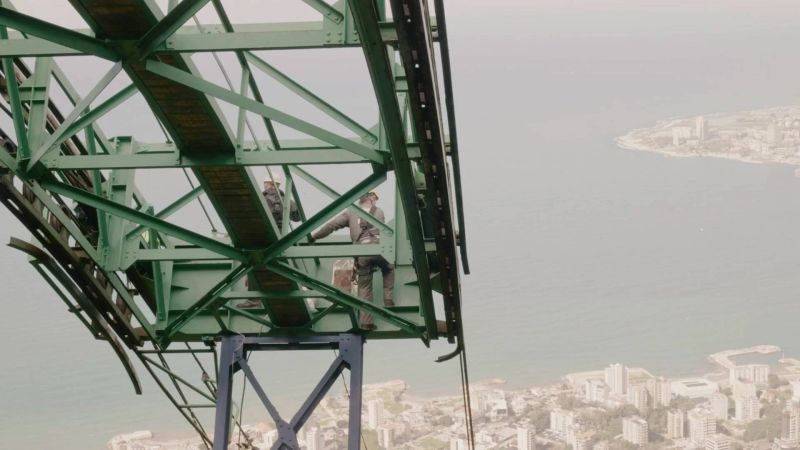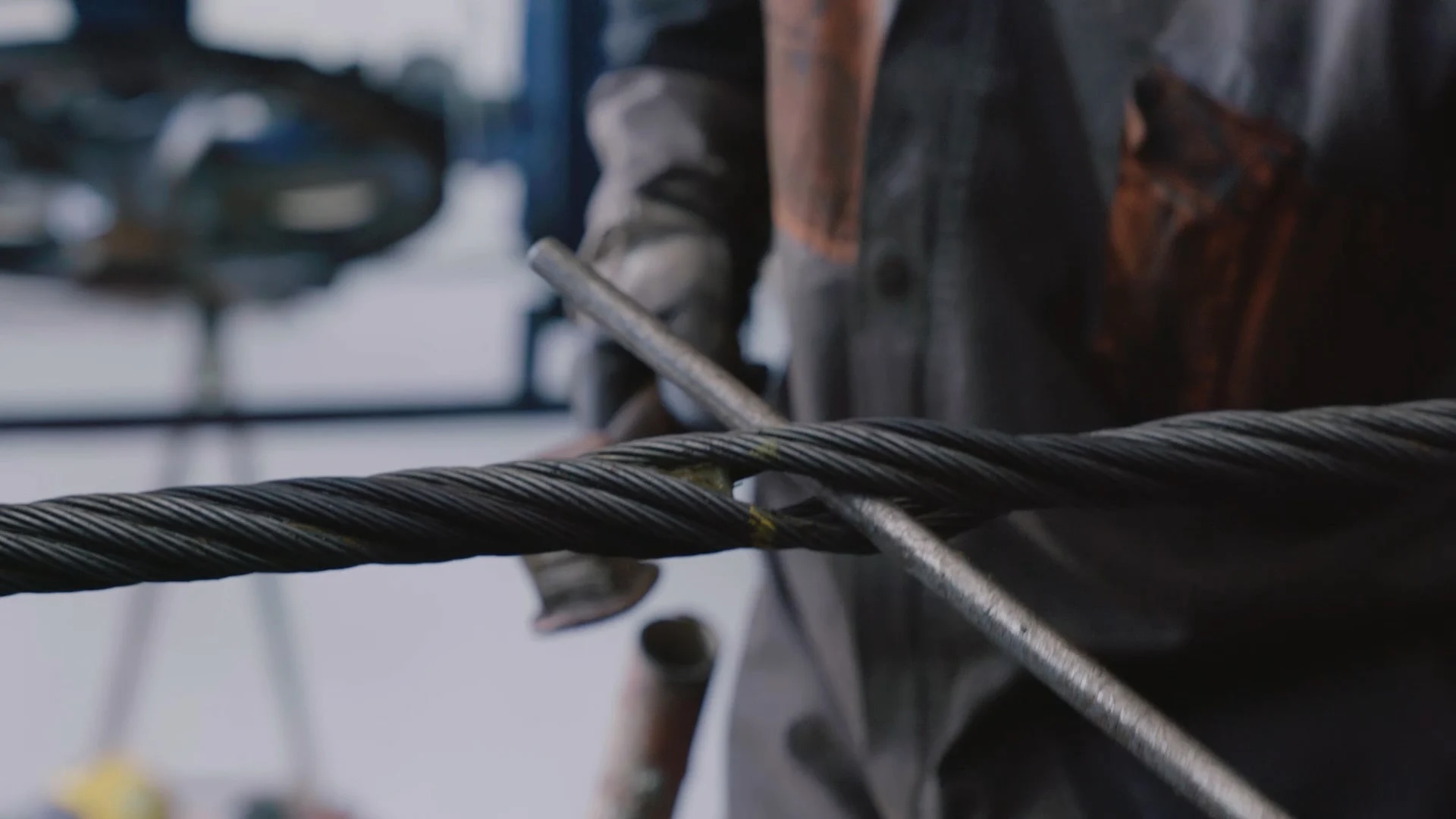
A technician inspects the cable car infrastructure overlooking Jounieh. (Credit: DR)
After the breakdown and the controversy, the Jounieh cable car reopens.
Three months after its closure in the wake of the incident on Dec. 28, which left 44 people trapped in the air for up to five hours, and the controversy surrounding the maintenance and safety of the cable car, the government, meeting on March 19, gave the go-ahead for its restart, provided that all the necessary repairs had been carried out.
This decision comes after the Lebanese Cable Car and Tourist Expansion Company, responsible for this means of air transport, was deemed not responsible for what happened. In its report on the decision, the board noted that the firm APAVE, commissioned by the Energy and Water Ministry — on which the company's concession depends — to investigate the incident had concluded that the cable car's crew and management had not failed in their responsibilities.
Contacted by L'Orient-Le Jour, the management of this tourist attraction said it was ready to reopen after a final test on Wednesday, March 27. After a few administrative procedures, the cable car officially reopened to the public on Friday, April 5.
Abrasion of a clamp
"The foreign experts who came to inspect the equipment deduced that friction at a clamp had abraded it, causing a loss of metal at that point and a lowering of the metal guide to the cabins at the entrance to a fixed station, which a cabin hit on the way down, bringing the ropeway to a halt," said Joe Boulos, CEO of the company.
"We have, of course, replaced the clamp that failed. As a precaution, we also replaced the seven other similar clamps, installed at different levels," he continued, adding that "we also repaired the cable, which had been damaged by the automatic braking system. This was a mammoth task, involving the replacement of almost 200 meters of cable, even though the damaged section was only a few centimeters long."
"The team from the French company Tec-Câbles, responsible for the job, had to make two splices along the entire length of the cable to restore it to its original state," explained Boulos. The work cost over $100,000.
 A member of the team from French company Tec-Câbles, making a splice on one of the ropeway cables. (Credit: DR)
A member of the team from French company Tec-Câbles, making a splice on one of the ropeway cables. (Credit: DR)
After an initial inspection visit at the beginning of February, the team from the international firm Bureau Veritas, a reference in the field, returned to Lebanon to check the work carried out and the state of the infrastructure, and to carry out all the necessary tests before giving its approval. "For almost 60 years, we have always been very strict in terms of safety and maintenance, and we intend to be even more vigilant at all levels," assured the CEO.
Concession transfer
Bureau Veritas, mandated to carry out an annual inspection of the infrastructure, will now do so two or three times a year. Local teams, responsible for daily and weekly maintenance, will have a more extensive checklist, Boulos also pointed out. Representatives of the ropeway company are also due to travel to Grenoble in the near future to attend Mountain Planet, the world's largest trade fair dedicated to mountain development, to study development possibilities.
Could this lead to the replacement of the old infrastructure by a newer one? Not any time soon, stressed the company. "All the international experts who visit our facility agree on the good condition and quality of such a German-built ropeway," said the CEO, for whom the Jounieh ropeway, in its current form, is part of Lebanon's tourism heritage. "To serve our visitors even better, we are working with a number of experts to improve and modernize certain aspects of the ropeway," he added.
In any case, the company is waiting for a clearer picture before undertaking any major works, whether in terms of the security situation in the country, due to the war in Gaza and South Lebanon, which is weighing on its business, or the duration of its operation of this space, which comes to an end in May 2026.
As for the transfer of the cable car concession from the Ministry of Energy to the Ministry of Tourism, raised in the wake of this latest incident, the government preferred to postpone the matter until a later date. In its minutes, it is mentioned that the Ministry of Energy has proposed to "deed" it once this concession expires. In the meantime, the ministry proposes coordination with the Tourism Ministry.
This article originally appeared in French in L'Orient-Le Jour.